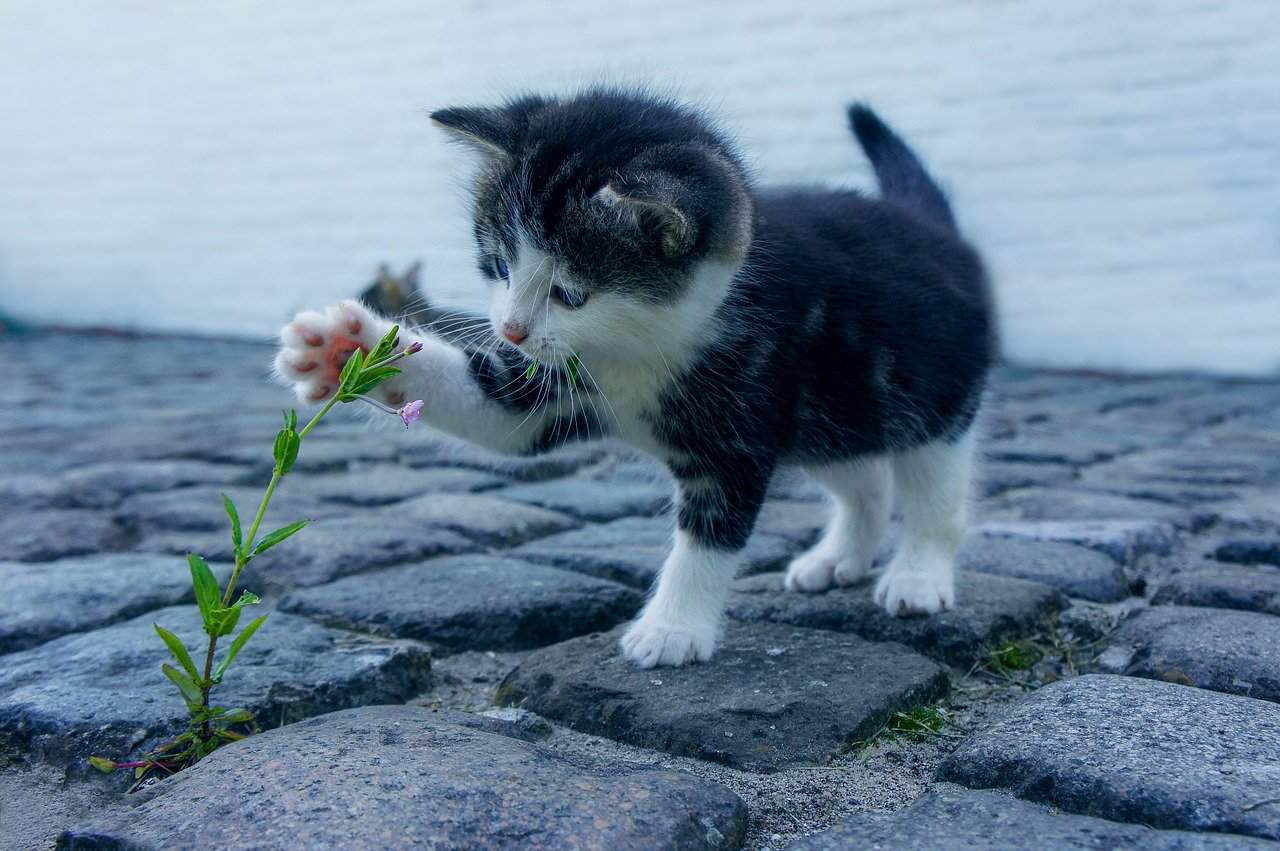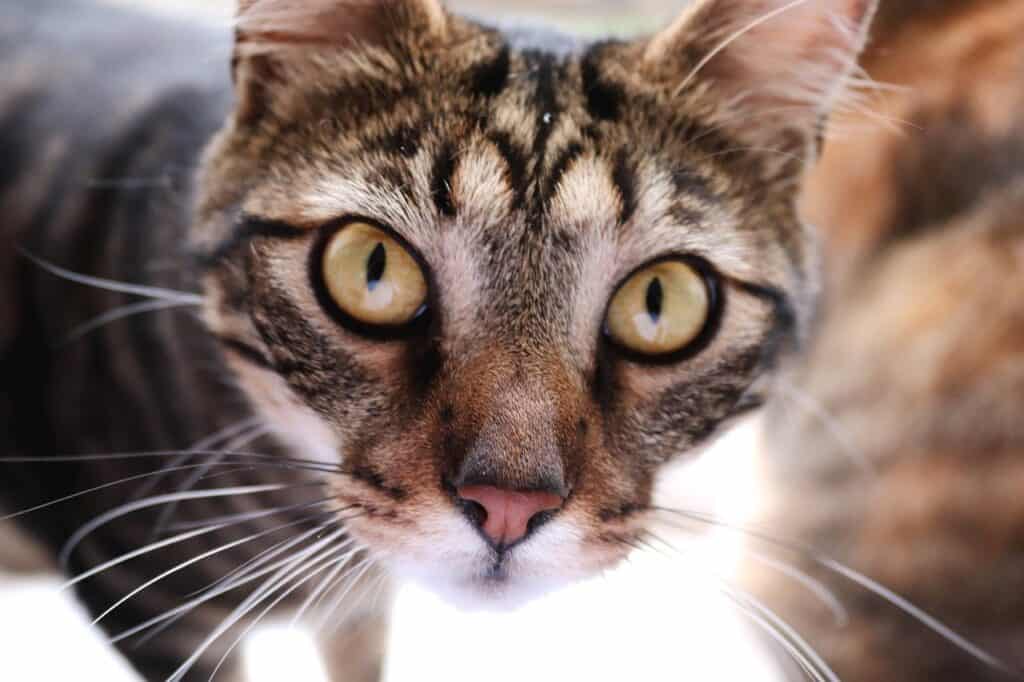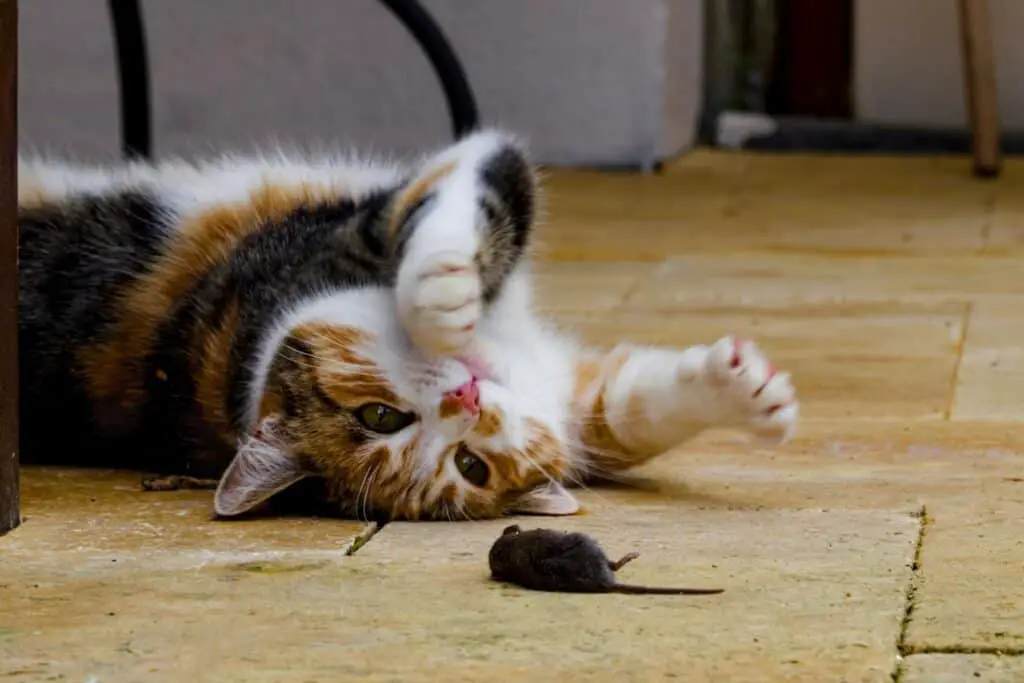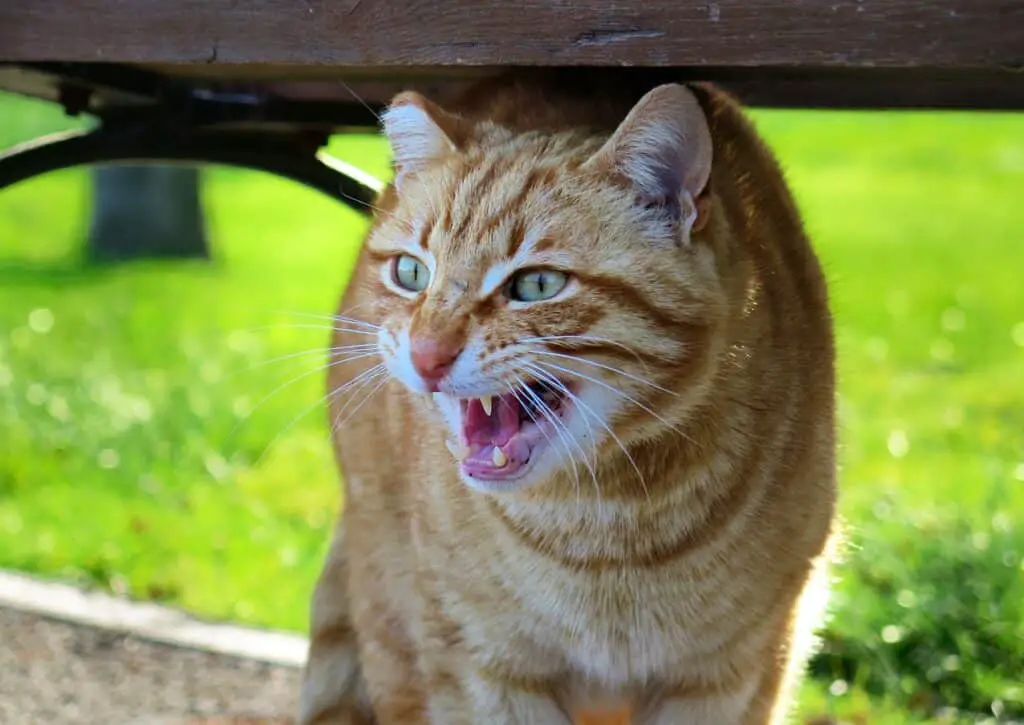Cats love to have a good nosey around at things. New smells, new people, anything that moves suddenly! Cats are curious by nature But why is this? Is it just in their nature, or did they evolve this way/?
A cat’s curiosity is an instinctual behavior that, throughout the evolution of the species, enabled them to find food in the wild. For domesticated cats, the need to find food in this manner is no longer necessary, but the instincts remain.
We’ve all heard the phrase, “curiosity killed the cat”. Now, while this may be a useful idiom in some situations, it is only half right. We’ll circle back to the phrase itself later, but one thing it does get right is that cats are curious creatures.
If you’d like to learn more about your furry friend’s burning curiosity, keep reading as we take a deeper dive.
“Curiosity Killed the Cat”
Cats have developed finely tuned senses and are instantly alerted to suspicious noises, smells, or movements in their vicinity because that movement could be something they can eat!
So why the inaccurate idiom?
Tracing down the origin of a phrase like this will always involve a lot of guesswork, but the most likely candidate is probably the fact that a cat’s curiosity doesn’t always translate well to the developed human world.
For example, being curious about something in the middle of a road with passing traffic is not a good survival trait. It’s worth remembering, however, that roads and traffic have only been around for the blink of an evolutionary eye.
It could also just be that, to humans, the bad outcomes are more significant. A domestic cat bringing home a mouse when it has a bowl full of food is a minor inconvenience to the owner, but a cat getting its head stuck in a tight space sticks in the memory.
Regardless of why the phrase came about, the truth is that curiosity only kills the cat sometimes… Evolutionarily speaking, curiosity gets the cat a meal more often than it kills them.
A curious hunter
The answer to why cats are so curious can be found in the bit that this famous idiom got wrong. Cats are curious, sure, but that curiosity didn’t kill the cat—it kept the cat alive!
Evolutionary speaking—that is, throughout millions of years, long before humans started domesticating them—a cat’s diet would consist of lots of small meals throughout the day. They would have to eat several times a day because the meals were small, such as small rodents and lizards.
Because those meals were usually small with several hours in between them, cats had to be both creative hunters and very much ‘in-tune with their environment to meet their daily demands for food.
Hence, the crucial point about catching your food several times a day is that you need to find that food in order to catch it.
That’s how their curiosity evolved and became a natural advantage that helped cats during the hunt.
Anything that changed in their territory could signal the presence of prey. Any sound could lead them to their next meal.
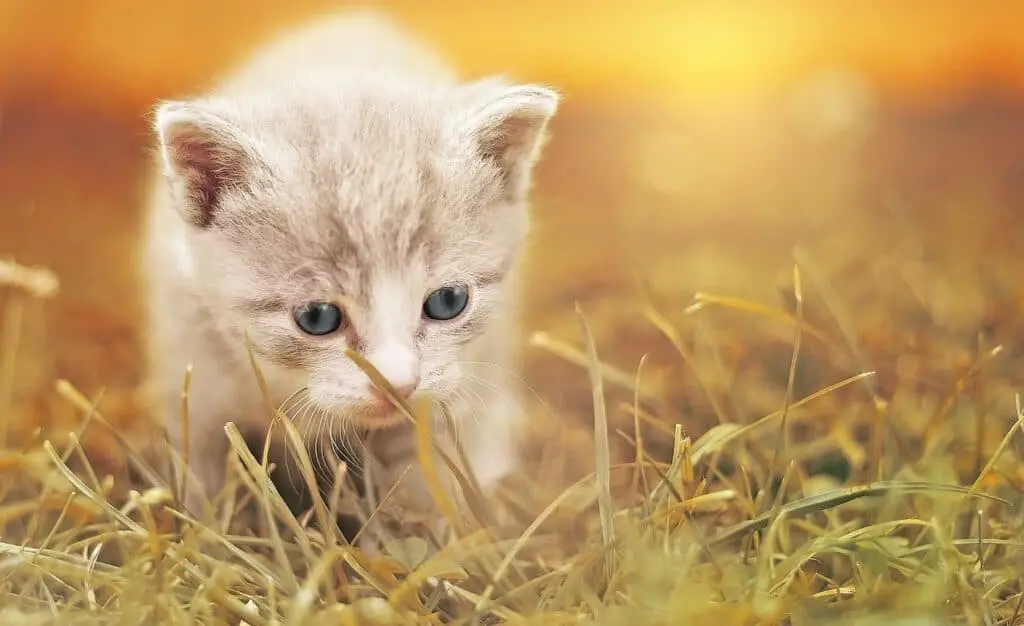
Territorial behavior
Cats can’t spend their entire day inspecting every inch of their surroundings—they have loafing, sleeping, and playing with their food to do, as well!
They reduce the amount of curious inspecting they have to do by clearly establishing their territory and then learning to remember every inch of it.
So, how do cats manage their territory?
They build a detailed mental picture of their territory. By doing so, they can readily spot when something is amiss, something has moved, or smells different.
This is why anything you change in your house will almost always get attention from your cat. It’s something new in their environment, and they need to check if it’s something they can eat or a threat.
In the wild, changes in their territory would not happen because a human has put a new coffee table down but because other creatures have been wandering through.
That is also why it is significant to a cat’s survival in the wild. It pays off to be curious and thoroughly inspect everything.
Should you be concerned about your cat’s curiosity?
As long as your home is generally safe—no exposed live electrical wires or precariously balanced heavy objects that could easily fall—there is no reason to be concerned by your cat’s innate curiosity.
It is a natural part of your cat’s instinctual makeup, and any attempt to stop them from being overly curious would be harmful to their wellbeing and development—not to mention unsuccessful.
There will always be a risk that your cat could get itself into some trouble you didn’t foresee—especially outside—but there is only so much you can do to protect what is a very independent animal in itself.
It’s also worth remembering that cats are extremely good at getting out of sticky situations, as the origin of the “cats have nine lives” idiom tells us.
Are changes to a cat’s environment stressful?
Significant changes will usually be a little stressful on any domesticated animal, but it’s important to remember that mental stimulation is vital to your cat’s wellbeing.
You shouldn’t go out of your way to keep your cat’s environment static and unchanging because that would be boring for your cat.
Granted, if you are completely rearranging the furniture every other day, that might get to them, but don’t worry about piquing your cat’s curiosity with a foreign object in the home or a new smell.
Keep Your Cat Stimulated
One way to manage your cat’s curiosity without stifling them is to give them something to be curious about. Make sure they have plenty of stimulation, and be sure to play with them as much as you can.
Your cat’s natural urge to pounce goes hand in hand with its curious nature, so giving them toys to play with will help scratch that itch. And, as you will be feeding them regularly, the original reason for their curiosity will be satisfied.
Final Thoughts
So, there you have it. Your cat’s curiosity is an instinctual urge leftover from when a cat would have to hunt down several meals a day to stay alive in the wild. It may not be necessary for a domesticated cat, fed by its human regularly, but evolutionary instincts are hard to get rid of.

